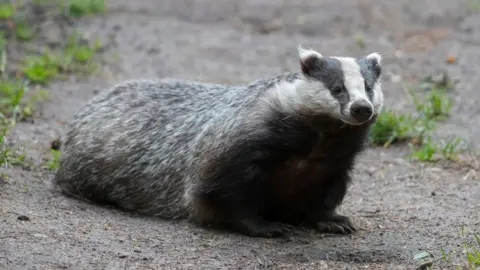Spain: Badger thought to have found Roman treasure
 Getty Images
Getty ImagesA hungry badger is thought to have unearthed the largest collection of Roman coins ever to have been discovered in northern Spain, reports say.
The treasure trove was discovered close to the den of an animal in the municipality of Grado, Asturias.
The animal is thought to have uncovered the treasure as it desperately searched for food last winter, a harsh one.
Heavy snowfall affected the region when Storm Filomena hit last year.
In a desperate attempt to find some food, it is thought that the animal - which researchers believe could be a badger - inserted its legs into a small crack opening next to its refuge.
But it found no use for the old coins and abandoned some of the pieces in front of its den.
The 209 pieces were then found by two archaeologists when they went to visit the cave of La Cuesta with a local resident, according to a report recently published in an archaeological journal.
The collection of rough coins turned out to be an "exceptional find" dating from between the 3rd and 5th Centuries AD.
The coins are thought to have been forged in places as far away as Constantinople (present day Istanbul, Turkey) and Thessaloniki, Greece, according to one of the researchers who spoke to Spanish newspaper El País.
Researchers added it was the largest treasure trove of Roman coins found in a cave in northern Spain to date.
Other treasures have been found in the dense woodlands of Grado. In the 1930s, 14 gold coins dating to the reign of Constantine I, a Roman emperor who reigned from 306 to 337 AD, were also found in the area, El País says.
The research project, funded by the cultural department of the province of Asturias, is in its first stage, and researchers hope to return to the area to do more excavating.
But for now, only the badger knows whether there is more treasure to find.

